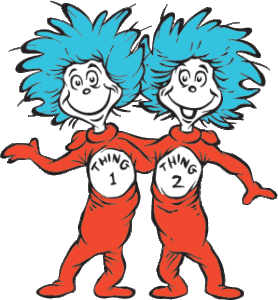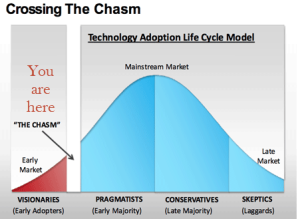Sep 04 2016
Just who do you think you are anyway?
“Today you are you,
that is truer than true.
There is no one alive
who is youer than you“
— Dr. Seuss

“Show me an authentic boss
. . . I’ll show you a winning leader!”
Real. Actual. Genuine. Bona Fide. Not False or Imitation. “Honest-to-Goodness.” Being Exactly What is Claimed. Good Faith. Sincerity of Intention. Legitimate. “The Real Deal.”
How many of these qualities do you carry in your pocket and empty onto the table when you’re talking, meeting, and dealing with others? How often? How influenced are you by good or bad moods? By past experiences or self-doubts? By your own past or present choices?
Does it matter whether the “others” are customers, prospects, employees, associates, investors, or suppliers? Does it matter whether you’re on the phone, in person, texting or emailing?
How much do incidents, environments, and issues beyond your control play a part?
What is it that you are most afraid of having others you work with, or sell to, learn about the real you?
What’s in the back of your closet
that you’re choosing to put
in the front of your mind
that’s holding you back from
being the up-front person
you’ve always wanted to be?
Have you made yourself be a victim of circumstances? Is this an identity you cling to?
This is not some ridiculous Hollywood exposé, or some empty suit government or political probe. This is about you, your business, your daily performance, and the way you “come across” to others.
Here’s why it matters. When you own or represent a business, the business is an extension of your ego. It is the career stage on which you have chosen to perform. 
Depending on how true to character you allow yourself to be, and how persuasively you present yourself and ideas, your business will rise and fall with the curtain calls and appreciative audience applause.
If you elect to play a hard-nosed character, and you’re convincing in that role, you will attract hard-nosed critics and audiences who may not hang around until intermission . . . or who are harder-nosed than you!
I’m not suggesting you or I or any of us has the ability to simply turn the authenticity faucet on and become (now finally “SAINT“) Mother Teresa. But I am saying that we all have certain qualities of genuineness as human beings.
Exercising these strengths of character (in spite of closed closets) will serve to free up unnecessarily-guarded business behaviors and–in the process–open opportunities we may never have thought possible.
It’s a choice that I can encourage, but only you can make. I urge you to take the risk to rise above your past memories, your own doubts and show more customers, employees, and suppliers more of what the real you is all about. Let them see that they can trust your judgement and earn your confidence.
You don’t have to “become one of the guys” to let others know that you possess compassion and humor alongside your insightful and visionary leadership. Hey, give it a try. You may even like your self better. Have fun!
# # #
hal@businessworks.US
STRATEGY/ CONTENT/ CONNECTION
931.854.0474 Coaching for Higher Branding Impact
Business Development/ National-Awards/ Record Client Sales
Personal & Professional Growth/ Creative Entrepreneurial Thinking










